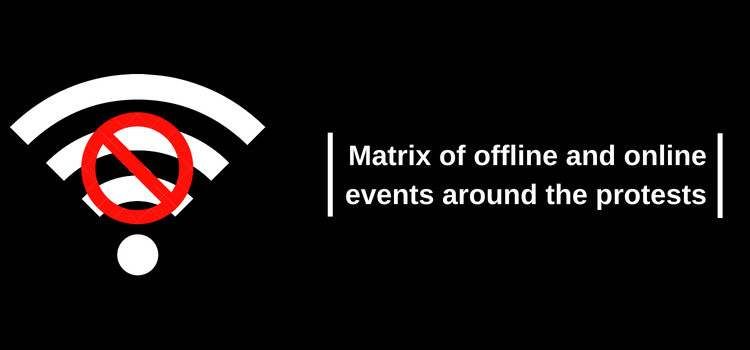Riots broke out in Harare yesterday afternoon.
Protesters cited delays in the release of the presidential election results as one major cause of the riots. This has been a highly anticipated election following former president Robert Mugabe’s resignation in November last year.
This election has also been significant because of the increasing role social media and other ICT tools have played in election-related matters. This short write up details three online events caused directly by actions in the “offline” world. Evidence that even in Zimbabwe, the online and offline worlds are no longer easily separable.
The government deployed the army to restore public order, in the process civilians were wounded, and some killed. Civilians and media practitioners on the ground recorded and shared images of the wounded and killed. Despite the wide circulation of these pictures, various ruling party members dismissed the reports as fake news.
Social media has made it easier for people to share information on current affairs as they unfold. This is sometimes viewed as a threat especially if the information shared does not show the government in a flattering light. Governments the world over, are using the fight against fake news as an excuse to restrict the sharing of information and limit free speech.
The second event came about as a retaliation to these attacks. The Zimbabwe Electoral Commission (ZEC) website was hacked and images of civilians wounded and killed by the army during the riots were uploaded on the website’s election results page.
An entity calling itself Victims of ZANU-PF claimed responsibility for the hack. The hack is estimated to have taken place around 6 pm. By 7 pm the website had been suspended most likely to get rid of the images.
This fits well with a warning issued by Bit Crack Security a local cybersecurity organisation. They warned of an increase in the volume of malicious traffic meant to identify and take over vulnerable websites. The warning singled out media and financial institution websites as being the most vulnerable to hacking.
The third event involves the zimelection.com website that was responsible for sharing the Zimbabwean voters roll online. At around 7 pm, MISA Zimbabwe received a report that the United Kingdom hosted website was inaccessible to people accessing the Internet via Tel-One ADSL.
TelOne disputed this, with the government-owned Internet Service Provider claiming that everything appeared normal from its end. Information control tests confirmed that zimelection.com was indeed inaccessible when using TelOne ADSL although the website was available via mobile data providers such as Econet and NetOne.
It is important to note that government has been working to bring the website down but has largely failed due to a lack of takedown laws that apply to foreign-based websites.
As Zimbabwe finalises its electoral process it is important to promote the right to access information. MISA Zimbabwe is concerned about and condemns the various ways in which information has been censored.
//END









